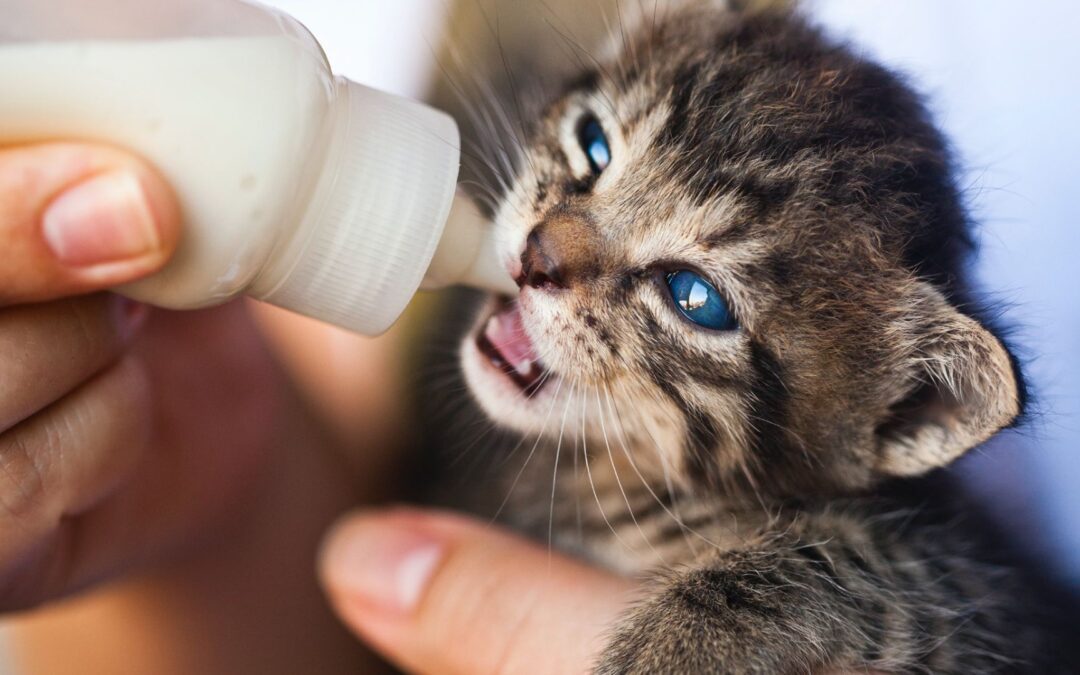Keep them warm: Kittens younger than three weeks don’t have the ability to regulate their body temperature. Even if the weather is nice to us- kittens can develop hypothermia at temperatures as high as 80 degrees F. If possible, place the kitten(s) in a box lined with blankets or towels. Put a heating pad on low under one-half of the box. Make sure that the kitten has space to move away from the heat source. If a heating pad is not available- you can fill a bottle with warm water and put it in with the kitten(s). Refill as needed to keep the box warm.
Kittens need frequent meals: Young kittens need to eat every couple of hours. You can purchase kitten formula at most pet supplies or grocery stores. They can be fed with either a syringe or a pet nursing bottle. Warm the formula to the temperature of a warm bath. Lay the kitten on a towel- belly down. Hold the bottle at a 45-degree angle and help the kitten latch on. If using a syringe you may need to press very gently on the pump- being sure not to give the kitten too much milk at one time. Do not continue to push formula into the kitten’s mouth if she is not swallowing or if milk is coming out of the nose.
They can’t go to the bathroom on their own: After feeding you will need to stimulate the kitten to urinate and defecate. You do this by stroking the urinary and rectal areas with a soft cloth or gauze that’s been moistened with warm water. If the kitten is dehydrated or constipated they may not produce urine or stool, and you can try again after the next feeding.
Sometimes they have a lot of fleas: Sometimes we see small kittens crawling with fleas. For tiny kitties, this is more than just gross-the fleas can take enough blood to make the kitten anemic. If the kitten seems to be well- you can give the kitten a warm bath with baby shampoo. Remove as many fleas as you can with a flea comb. Be sure to keep the kitten warm and dry him thoroughly.
Some places to start when looking for a foster are Kaydee’s Promise Feline Rescue, Kentucky Humane Society, Louisville Metro Animal Services, or local veterinary offices. If the kitten is lethargic or not responding to stimuli contact an emergency vet.

